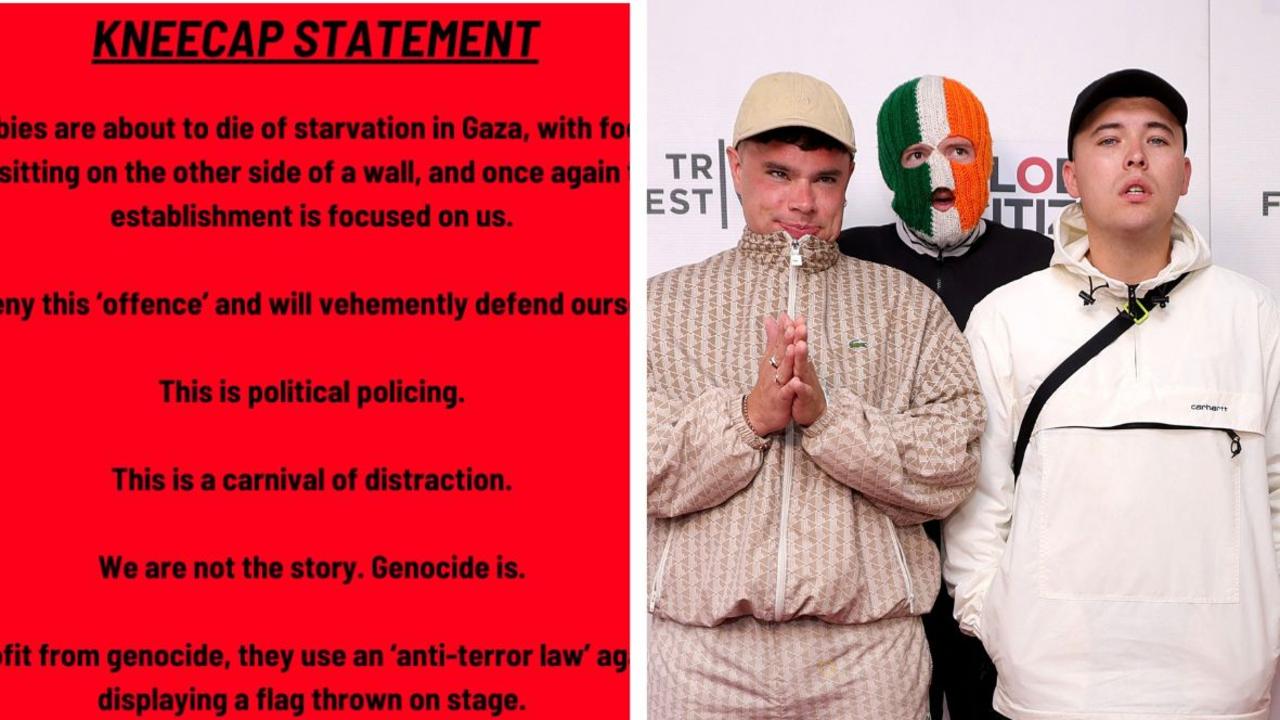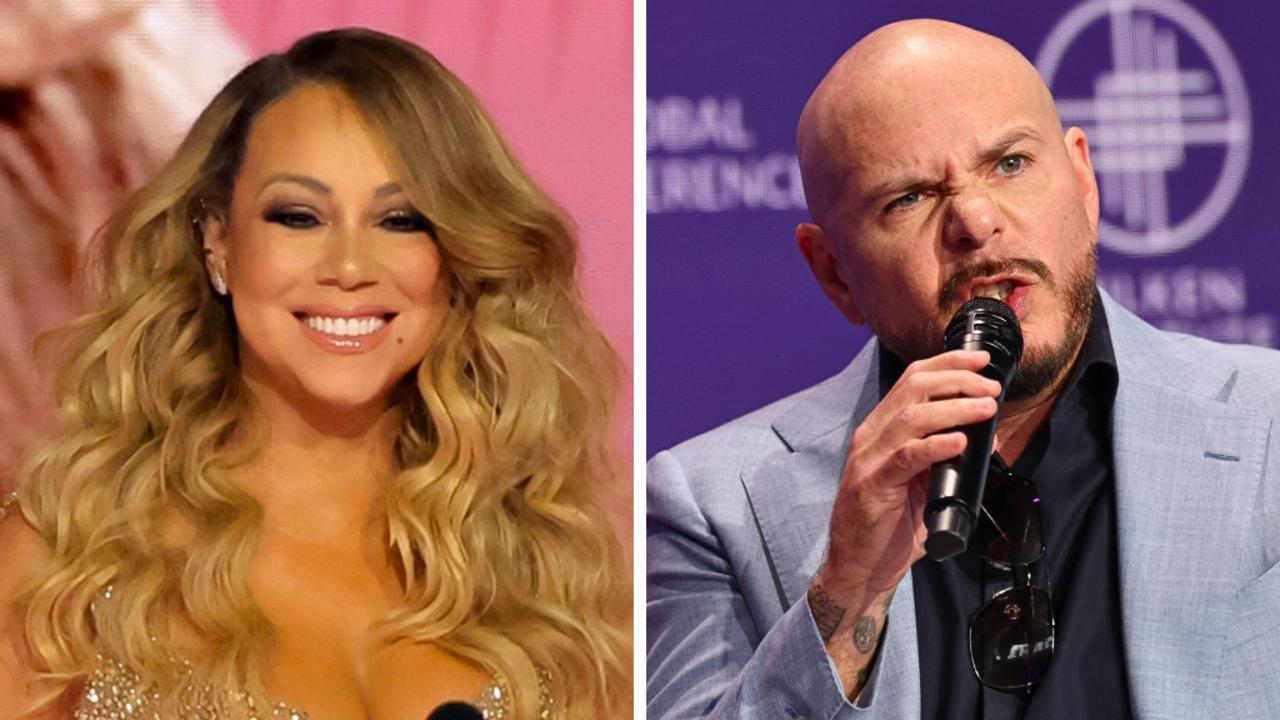How Australia is leading the world in bringing touring festivals back
The live music festival suffered last year, but Aussie promoters are bringing it back — including the first touring festival in the world right now.
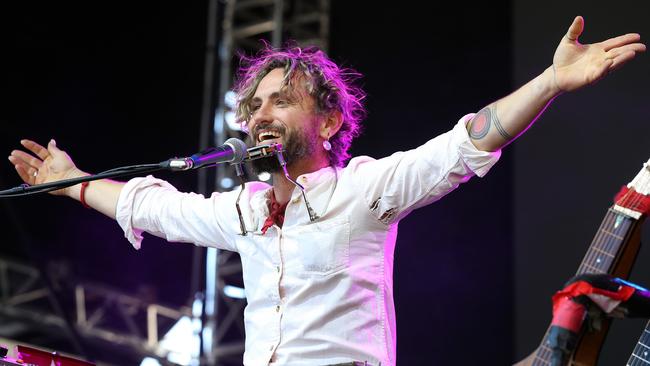
Music Festivals
Don't miss out on the headlines from Music Festivals. Followed categories will be added to My News.
Australia has led the world in getting outdoor music festivals back on stage.
The Summersalt festival, headlined by The Cat Empire, The Teskey Brothers and John Butler, is believed to be the first touring festival in the world since COVID shut down the live music industry.
Summersalt has already played shows in South Australia and Victoria, with dates in Ballarat and Canberra this weekend, and events in Sydney, Geraldton, Tasmania, Fremantle and Wollongong in March.
By the time it ends in Darwin in April it will have sold over 70,000 tickets across Australia.
“It’s one thing to get these shows up in Australia, but at the moment we’re the only touring festival in the world, which is quite an achievement,” Summersalt promoter John Zaccaria said.
“This is great for artists and crews who’ve been sitting around for months waiting to work again. We all need this, the industry needs this.”
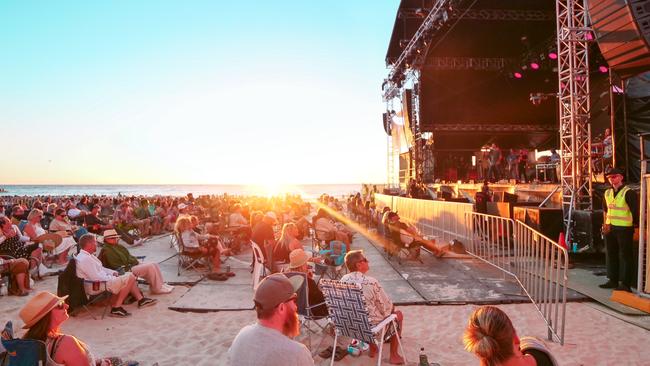
While smaller indoor shows are happening in most states, many with reduced capacities, larger indoor arena shows are yet to return. This week Karnivool cancelled their March indoor Australian tour (outside of WA) due to limited capacities, border closures and other restrictions making the shows “no longer viable”.
Delta Goodrem’s April tour is the first major jaunt to test the waters, followed by Tina Arena in May. Most acts have pushed bigger arena shows to later in 2021, hoping they can operate with full capacities.
At the moment, outdoor events are favoured by health officials – the bodies needed to approve the all-important COVID-safe plans.
“Fresh air is something that’s on our side,” Zaccaria said.
“Having zones at an indoor arena would be a challenge, whereas outdoors we can just move things around. You have more flexibility to create a unique site that ticks the boxes to get approval.”
With a national tour, Zaccaria had to please federal and state health departments.
“Each state has their own rules and regulations that we have to work through,” he said.
“South Australia are the most strict, you can’t dance at shows. In Melbourne, Vic Health came to the shows and were happy for people to dance in front of their chairs. If people rush to the stage you can’t track or trace anyone. It’s better to have no dancefloor or no moshpit but have a stage and an event and people there. Apart from the Northern Territory the one thing all states want is no moshpit, no dancefloor.”
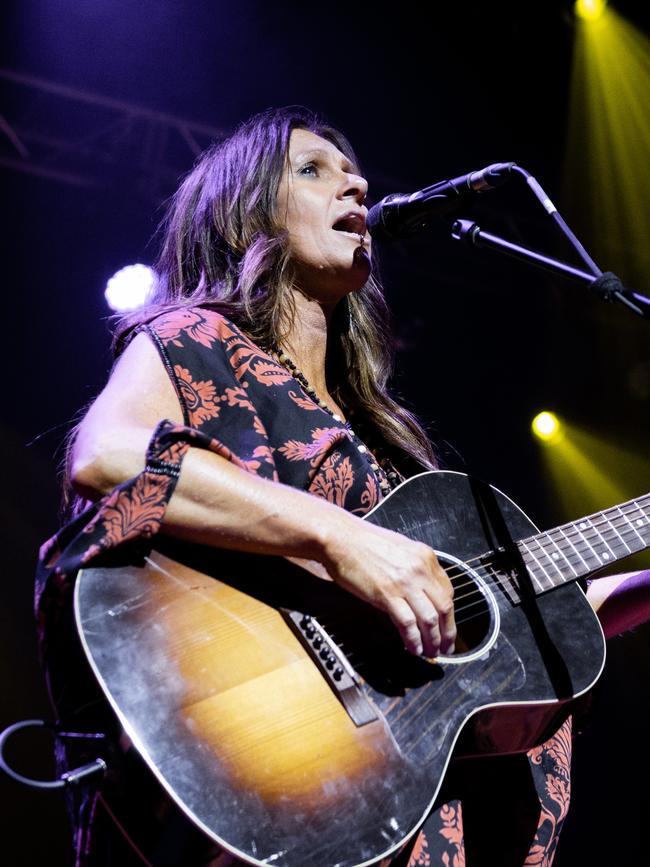
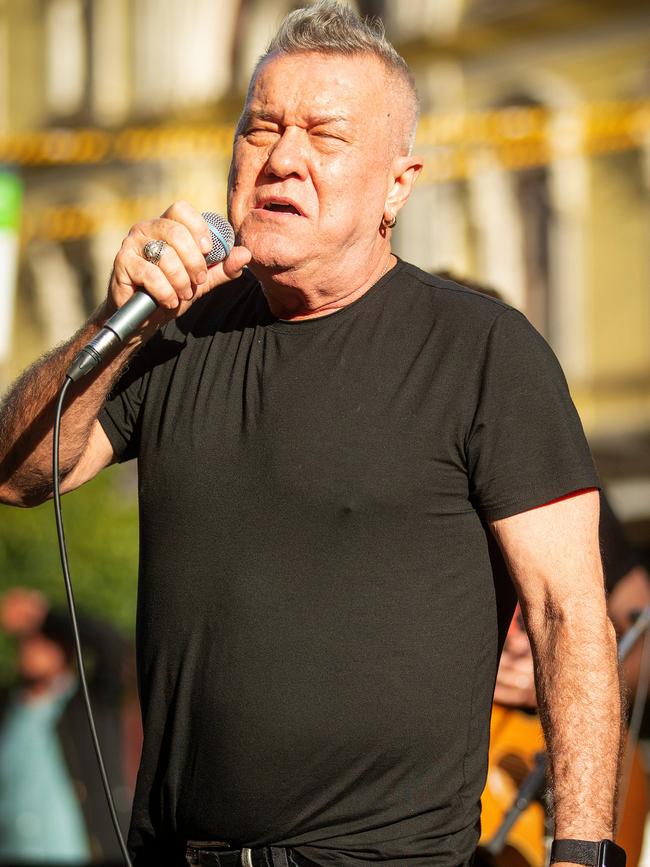
Jimmy Barnes, Diesel and Hoodoo Guru headline the Red Hot Summer Tour which starts in Tasmania in March before moving around the country. The Victorian and NSW dates were deliberately moved to October from the outset as a precautionary measure.
Byron Bay’s Bluesfest has been approved to take place at Easter, Dark Mofo in Hobart will occur in June after cancelling last year’s event while Birdsville’s Big Red Bash in July in Queensland, headlined by Paul Kelly, got greenlighted by officials this week.
Summer Sounds has seen Australian artists including Bernard Fanning and Ball Park Music performing to audience members in ‘pods’ in Adelaide in January and now Melbourne in February and March. Zaccaria also has By The C, headlined by Icehouse, playing outdoor events in Melbourne, Perth and Sydney in March.
Bluesfest Festival Director Peter Noble has been working tirelessly on reactivating the event since it was cancelled last March.
Luckily, already having a ‘communicable diseases’ insurance clause due to a previous gastro scare meant he was covered for last year’s cancellation and punters were refunded; the 2021 Bluesfest is an all-Australian line-up headlined by acts including Kasey Chambers, Jimmy Barnes, Ian Moss, Briggs, The Living End and more.
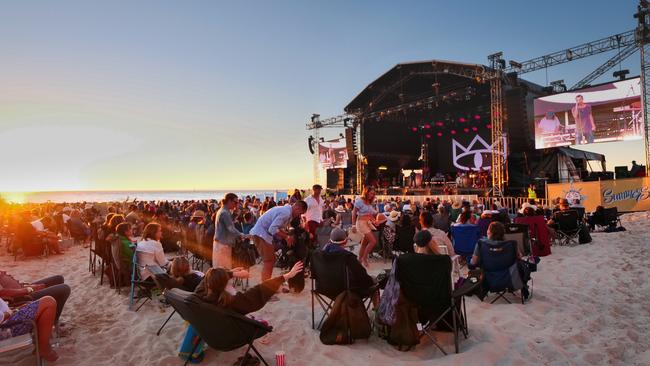
It will be 50-per-cent reduced capacity – 15,000 punters – and fully seated.
“Nobody is prevented from getting out of their seat to get food, go to a bar or go to another stage,” Noble said.
“Bluesfest is the first multi-day event to get a COVID safety plan approved. We are seeing our industry open up and we need it so badly. I’d love to see a return to Bluesfest as it is traditionally presented but right now we have to do safe events.”
Noble received $1 million from the Federal Government, as part of its $75 million Restart Investment to Sustain and Expand (RISE) fund – part of the $250 million arts survival package announced last June.
“It sounds like a lot of money but when you’re putting on a music festival you just need so much more,” Noble said.
“For whatever reason the Australian Government has not invested in the live music arts industry like other countries have done.”
Zaccaria missed out on funding and said the extra costs in putting on COVID-safe shows are brutal but the results are great for punters.
The new rule of thumb is two square meters around every audience member, instead of one square metre.
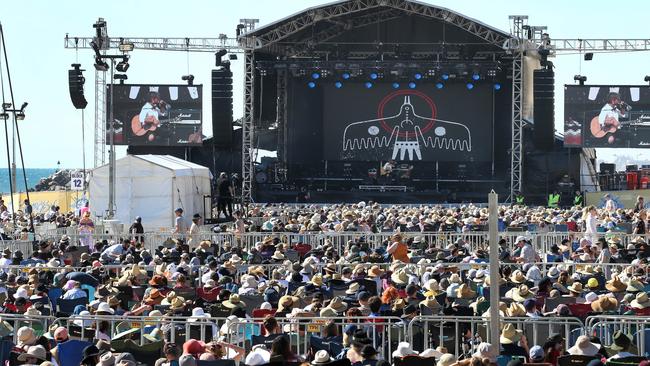
Summersalt shows have split audiences into different zones, while they’ve doubled the number of staff on entry gates so punters have less time to congregate around strangers upon arrival.
“To be honest it’s a more pleasant experience for people, it’s business class rather than economy, they’ve all got more leg room, more space,” Zaccaria said.
“There’s more toilets, more bars, more food. The actual concert experience is better because it’s over serviced to accommodate for COVID.
“You can still break even, it adds an element of risk for sure and the additional costs aren’t small. There’s things like fencing, security, COVID marshalls, up to 80 to 100 extra staff. I’d rather invest that money in additional staff in order to have an event than sitting at home doing nothing. And with the sales we’ve achieved with our shows it’s definitely been worthwhile.”
Backstage in 2021 is also different – no congregating, no guests backstage, masks are recommended and band and touring crew are COVID tested each time they enter a new state.
“We’re not going out, it’s literally hotel to gig, we avoid the cities, we limit our exposure in the event of an outbreak, we ask the bands to do the same. You lose one band member and you’ve lost the band if they’ve been exposed,” Zaccaria said.
“We’re not taking for granted what we’re getting to do. I hope other promoters will see the model that got approved and see that it’s real, it happened and not wait until everyone is vaccinated next summer. I don’t think you’ll see Splendour in the Grass-style festivals with moshpits for 40,000 people any time soon, maybe once everyone’s vaccinated, but for these smaller festivals that get approved, it can work.”
Originally published as How Australia is leading the world in bringing touring festivals back



